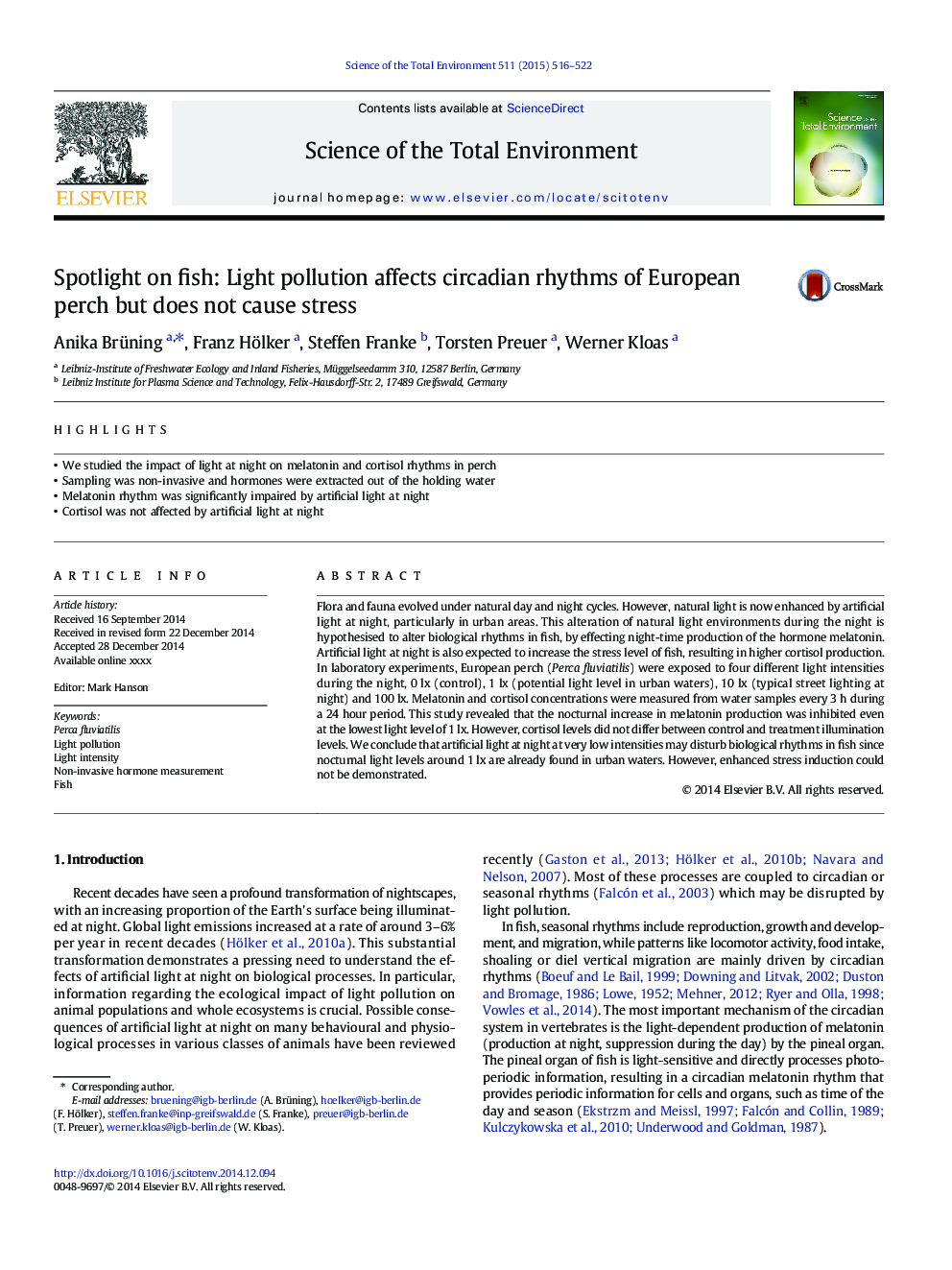| Article ID | Journal | Published Year | Pages | File Type |
|---|---|---|---|---|
| 6327517 | Science of The Total Environment | 2015 | 7 Pages |
Abstract
Flora and fauna evolved under natural day and night cycles. However, natural light is now enhanced by artificial light at night, particularly in urban areas. This alteration of natural light environments during the night is hypothesised to alter biological rhythms in fish, by effecting night-time production of the hormone melatonin. Artificial light at night is also expected to increase the stress level of fish, resulting in higher cortisol production. In laboratory experiments, European perch (Perca fluviatilis) were exposed to four different light intensities during the night, 0Â lx (control), 1Â lx (potential light level in urban waters), 10Â lx (typical street lighting at night) and 100Â lx. Melatonin and cortisol concentrations were measured from water samples every 3Â h during a 24Â hour period. This study revealed that the nocturnal increase in melatonin production was inhibited even at the lowest light level of 1Â lx. However, cortisol levels did not differ between control and treatment illumination levels. We conclude that artificial light at night at very low intensities may disturb biological rhythms in fish since nocturnal light levels around 1Â lx are already found in urban waters. However, enhanced stress induction could not be demonstrated.
Related Topics
Life Sciences
Environmental Science
Environmental Chemistry
Authors
Anika Brüning, Franz Hölker, Steffen Franke, Torsten Preuer, Werner Kloas,
